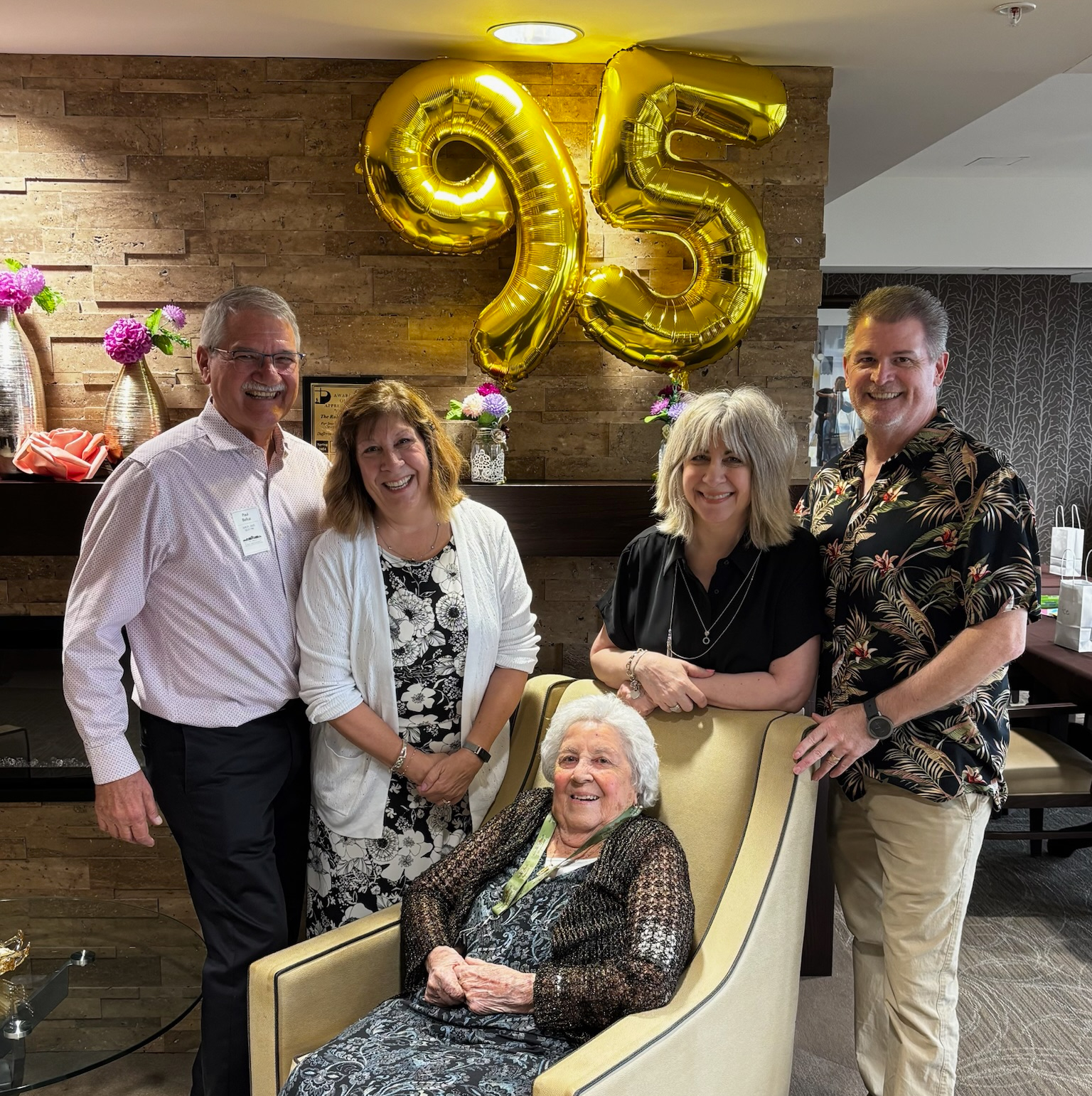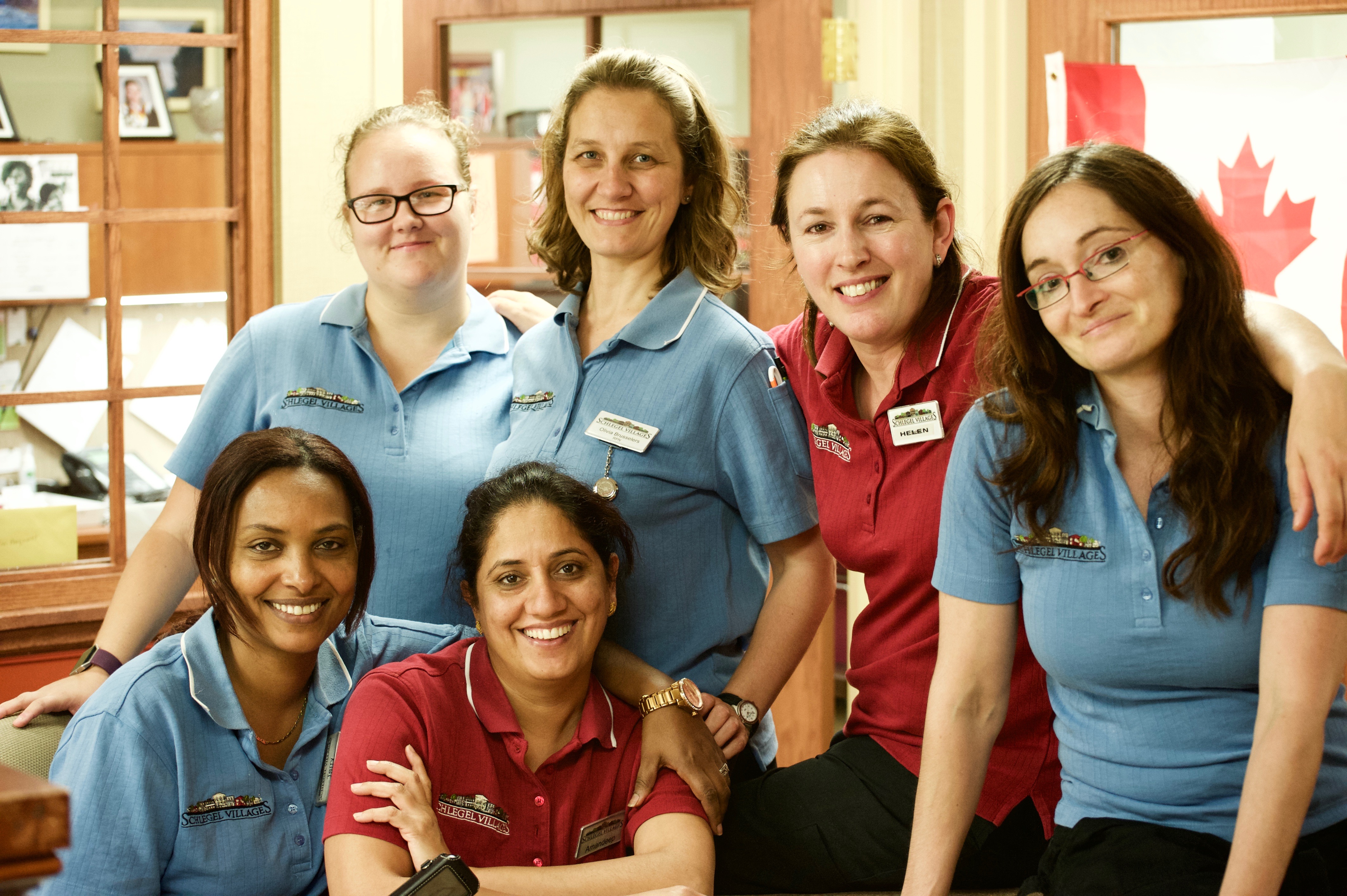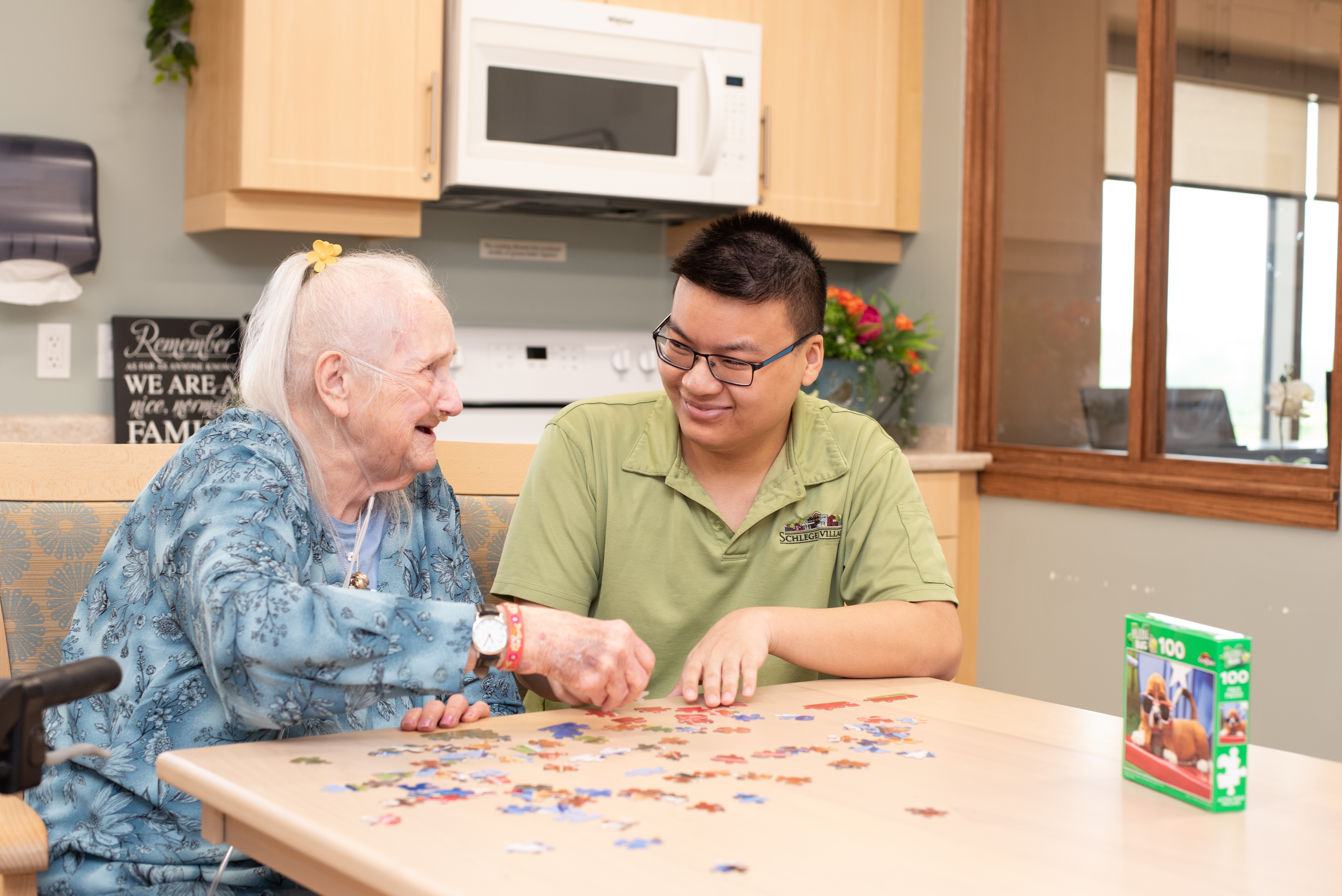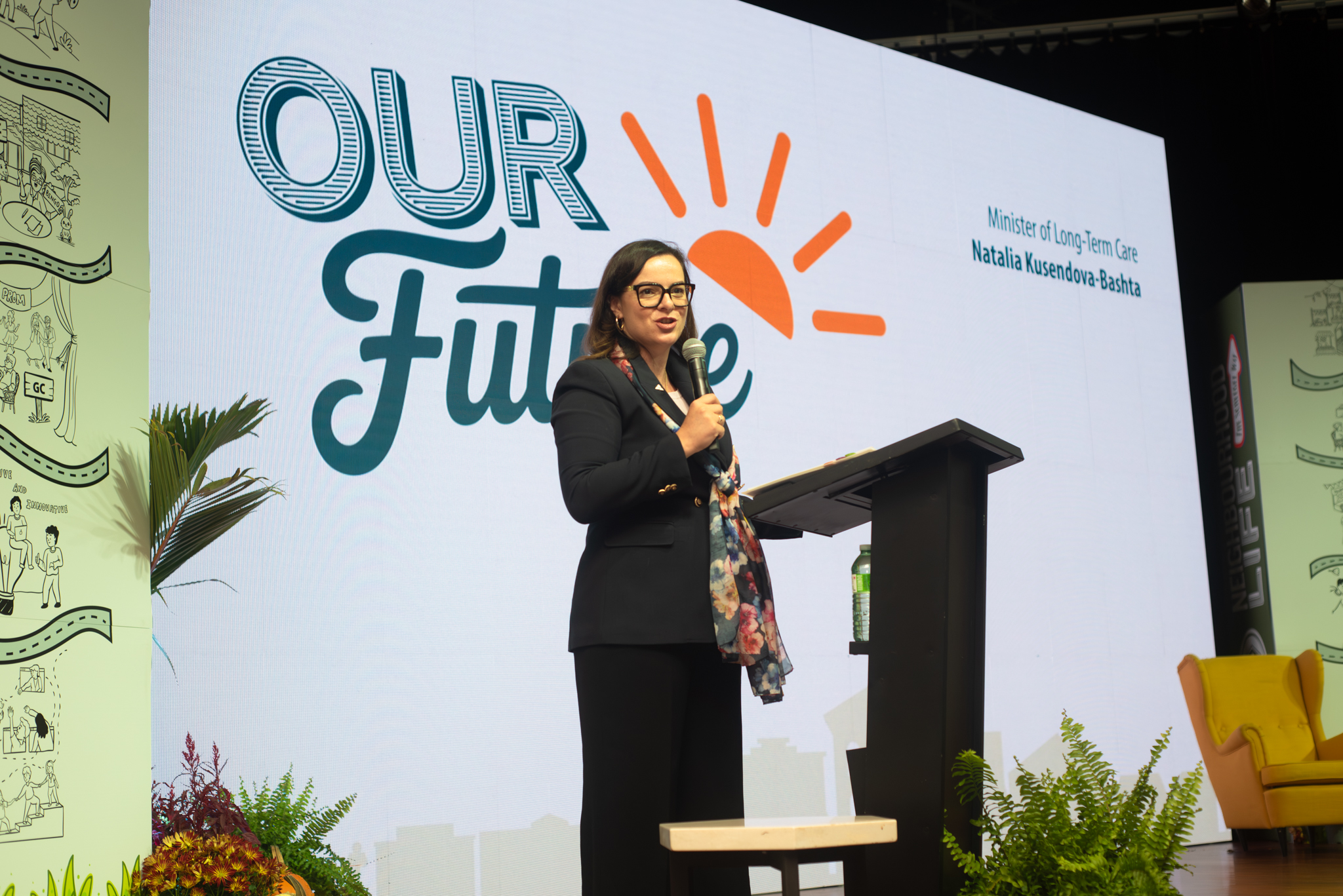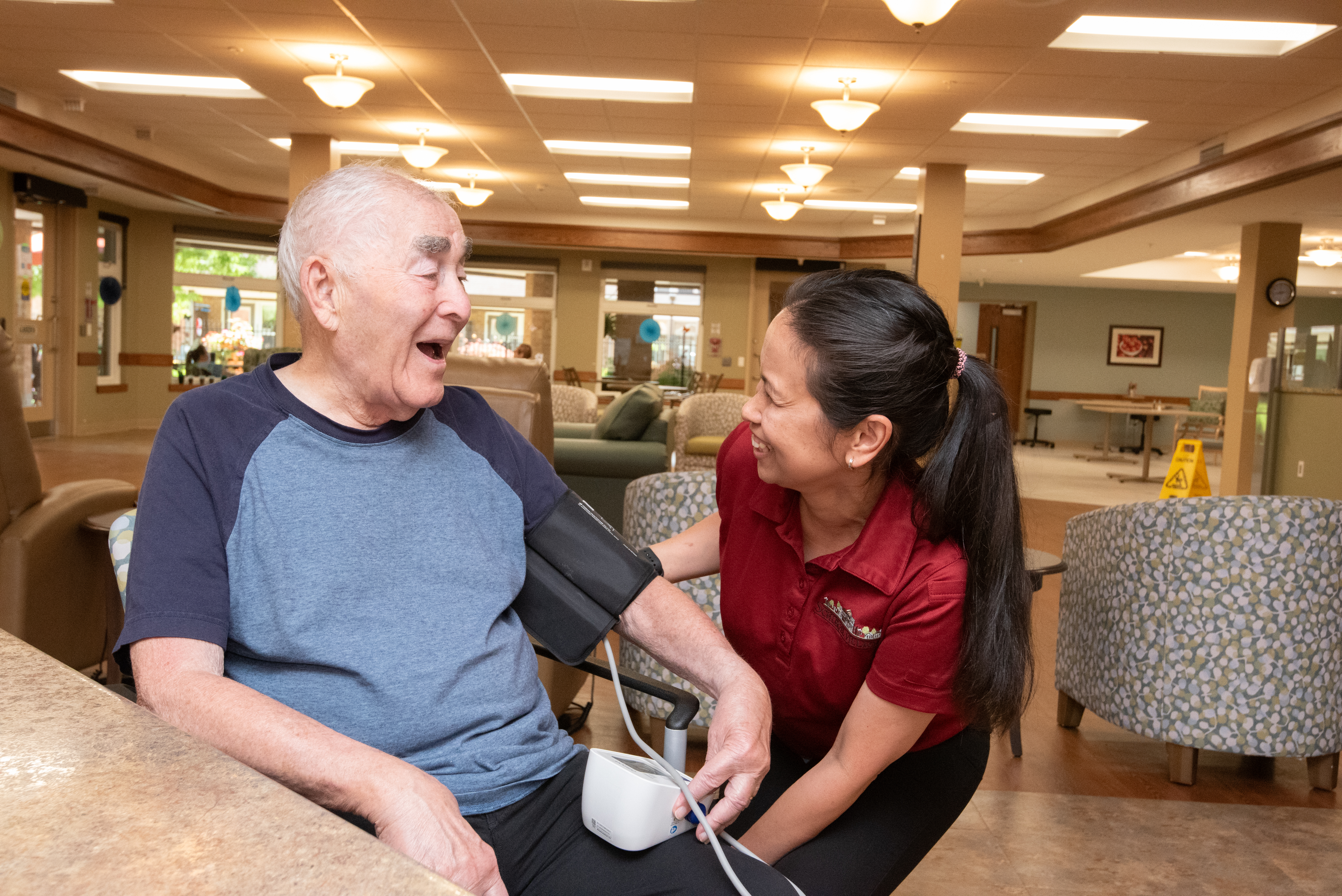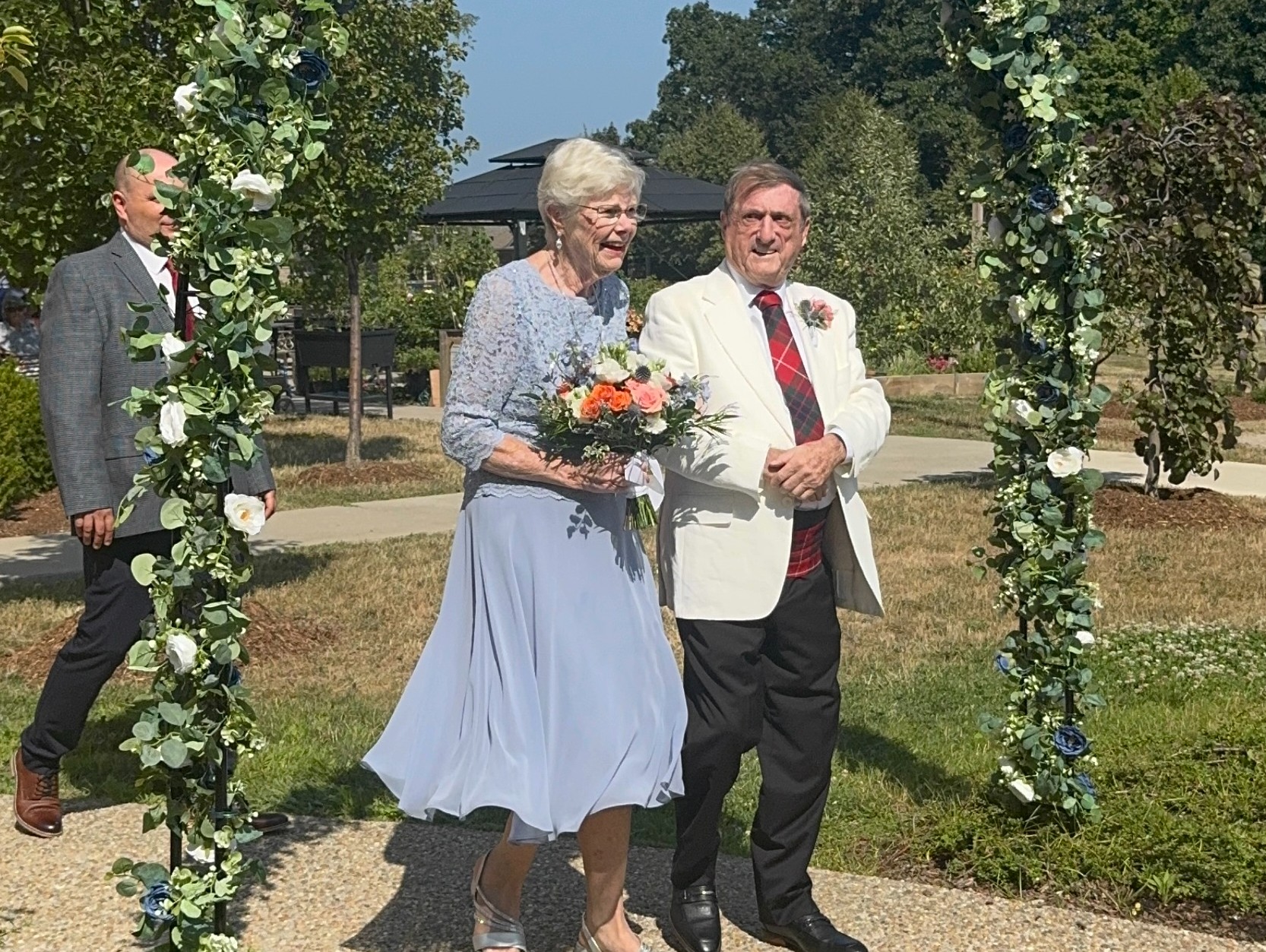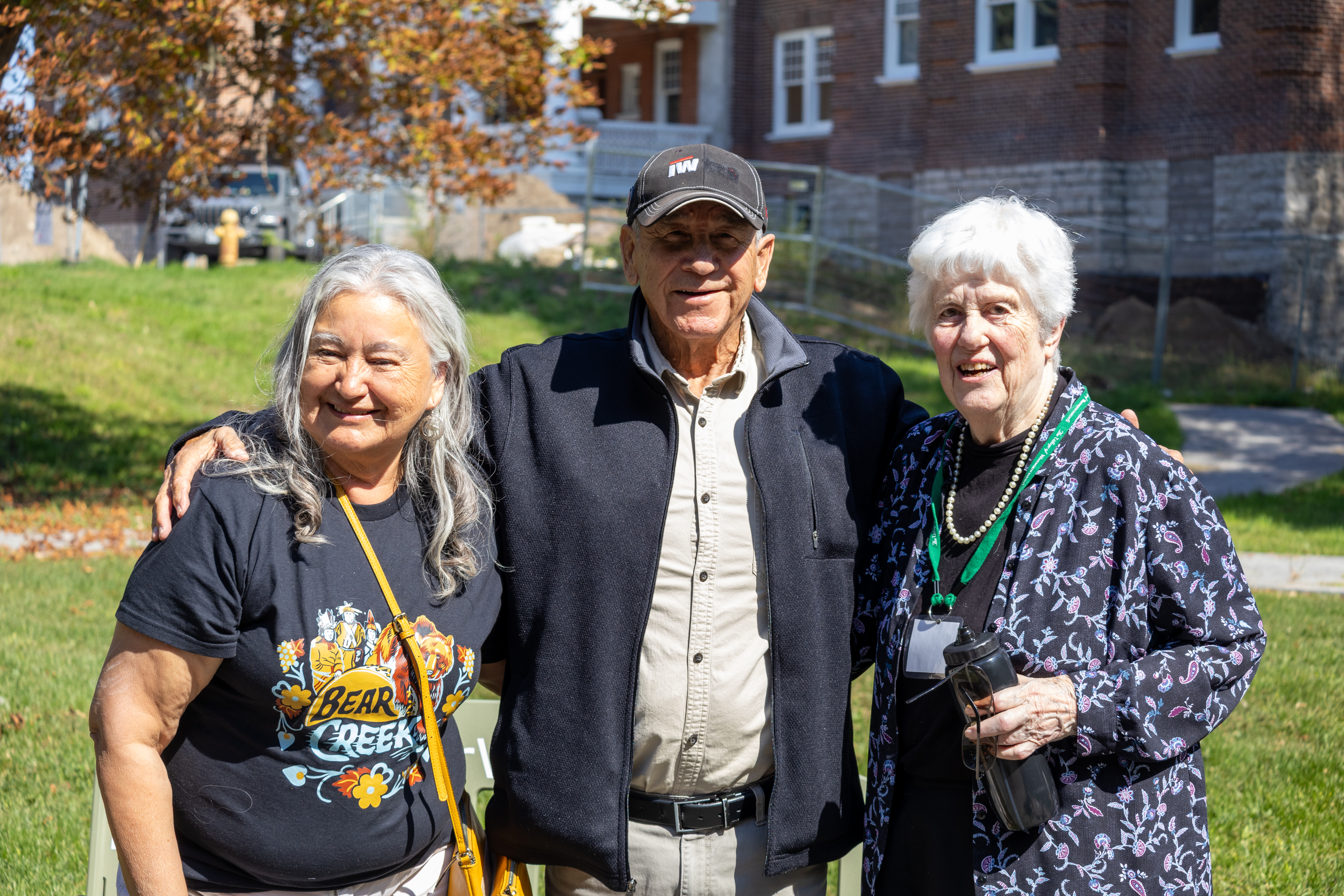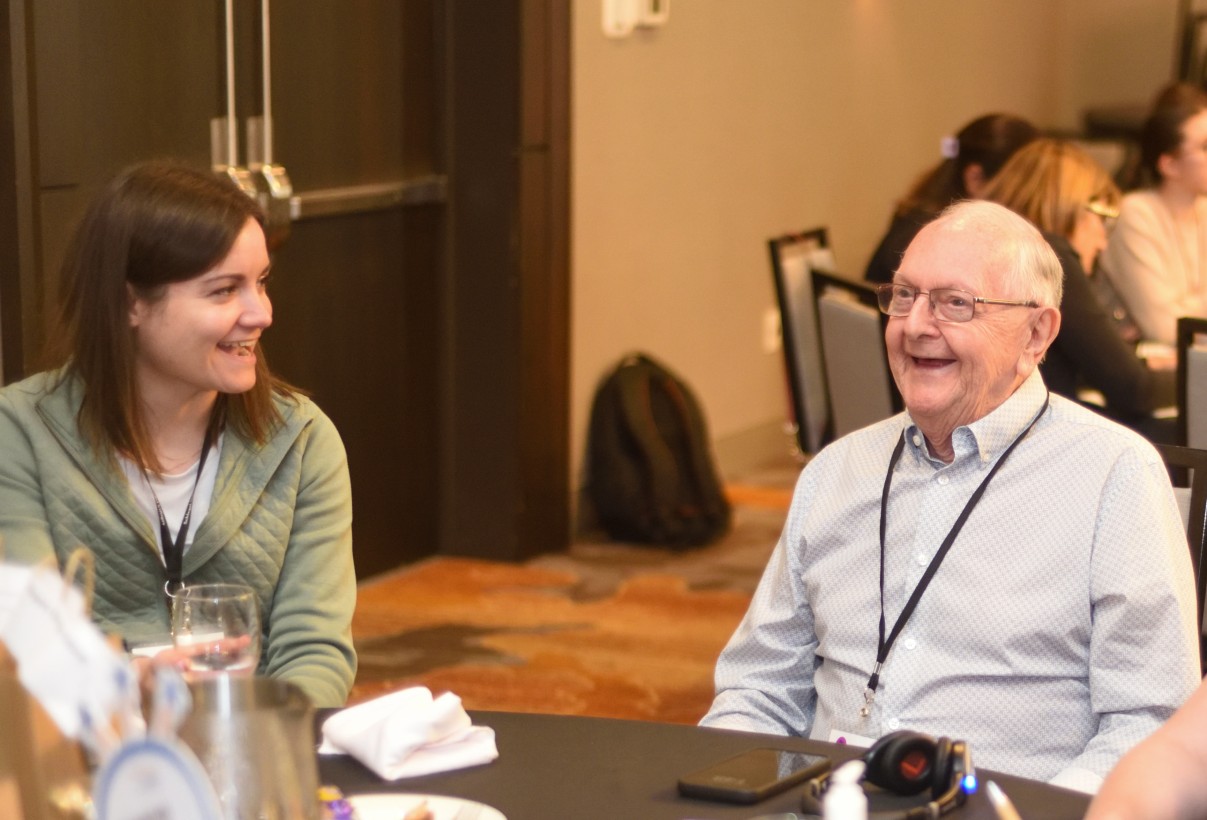The importance of relationships highlighted for nursing and PSW students
By Kristian Partington
When the idea was first conceived of building a new, 192-bed long-term care village in Waterloo that would tie together research, education and practice related to aging, partnership and shared learning was always the vision.
Researchers with the Schlegel-UW Research Institute for Aging (RIA) would be right next door while Conestoga College practical nursing (PN) and personal support worker (PSW) students would study in the state-of-the-art Living Classrooms downstairs. All the while, residents and team members at the village would carry on with their daily lives. The hope was that as neighbours, all three entities would interact naturally providing new opportunities for the cross-pollination of ideas and experiences that would inspire the continual evolution of care and support for our aging citizens.
“From the get-go it’s been important for us at University Gates to have those partnerships alive,” says recreation director Hilary Balaban, pointing to the Adopt-a-Student program as one of the prime the examples of these partnerships in action. When Sharon Clarke, Conestoga’s PSW and PN coordinator at University Gates, approached Hilary with the idea of pairing residents with students, there was no hesitation. Hilary envisioned residents bestowing wisdom upon the soon-to-be caregivers and Sharon saw the concept as an opportunity for residents to find new meaning in their lives by mentoring the students.
There were 40 pairings in the first semester and the program has flourished in many ways. Hilary has overheard residents speaking with their students about everyday life lessons like finance or family, and she sees true companionship growing among the participants.
“The research tells us that the older adult, especially in long-term care, is lonely, bored and lacks purpose,” explains Sharon. Bringing residents together with students could help alleviate some of these challenges, she thought, while providing students with a new understanding of the importance of reciprocal relationships in any caregiving environment.
That vision seems to be playing out beautifully.
First-year PN student Brenda Foss says that long-term care wasn’t necessarily on her radar when she decided to study nursing, Her time in the aging and development class and her experience at University Gates has offered her new insights, however.
As an adopted student in that first semester, Brenda embraced every opportunity she had to visit and develop the relationship with her mentor. “As I would go up to visit with her I could see practically what I was learning in the classroom and I was able to identify different things in her behaviours and her attitudes,” Brenda says. And beyond that, she was able to discover the person behind the “patient” in a meaningful way, looking at a more holistic approach to nursing that a textbook can’t necessarily convey.
“The physical is important but there’s so much more,” Brenda says. “There’s the spiritual – there’s the whole soul of a person that really needs to be taken care of.”
Relationships are at the core of high quality care, many would argue. Thanks to the partnerships that flourish at University Gates, Conestoga students are immersed in this reality from the beginning of their lessons and the people they serve in the future will be the true beneficiaries.
- Previous
- View All News
- Next
